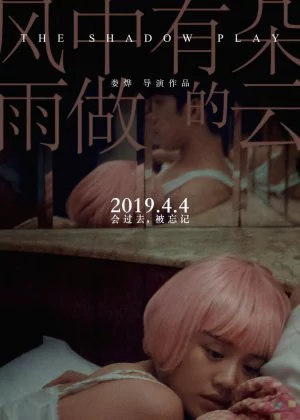The Shadow Play
Ye Lou is one of the black sheep of Chinese cinema. He's always at odds with the censorship board and his films range from youthful and edgy to more classical arthouse fare, making his output quite erratic and tough to predict. I've been keeping an eye on his career, but it's been some time since I actually looked forward to seeing one of his films. Which is why The Shadow Play [Diyu Lianren] was such a nice surprise. It reminded me a lot of Lou's earlier work, the films that made me a fan of Lou in the first place. It also means though that people who prefer his more arthouse-friendly films might have a tougher time with The Shadow Play.
![screen capture of The Shadow Play [Diyu Lianren]](/thumbs/img/articles/1200xauto/shadow-play-1.webp)
Ye Lou's Suzhou River was one of the pivotal Chinese films of the new millennium. It moved the setting from rural China to the city, only without getting bogged down by the expected rural vs urban social commentary. Lou embraced the city, which changed the entire dynamic within the film and inspired a lot of young Chinese directors to do the same. It marked the start of a new generation of Chinese films and film makers. But Lou didn't remain part of that vanguard for very long and as his films changed, I slowly lost my passion for his work.
The Shadow Play isn't a fully committed return to the early days, but it does embrace the spirit of youthfulness that characterized the start of Lou's career. By introducing more genre elements (crime and noir mostly) and by moving away from more traditional styling this film feels more relevant and current. There's still a quite heavy arthouse influence running through The Shadow Play, but there's also something extra that succeeds in challenging the status quo. It's that balance that pulled me in.
The story starts when a local developer is murdered, minutes after having calmed down a crowd of demonstrators who are about to lose their houses. A young police officer is put on the case, but he quickly gets entangled in a dark plot that surpasses his junior rank and abilities. Before long his reputation is smeared, yet he isn't willing to let go of the case and vows to find out who committed the crime. The story itself isn't anything original of course, but it provides plenty of juicy hooks for the drama to unfold.
![screen capture of The Shadow Play [Diyu Lianren]](/thumbs/img/articles/1200xauto/shadow-play-2.webp)
Visually this was a pretty big step up from Lou's previous films. The camera work in particular is pretty amazing. Very close to the characters, with a camera that is always on the move. Combined with some nervous editing work it creates a very volatile and skittish atmosphere. The lighting too plays a big part in the visual appeal, turning the main actors into shadowy figures, set against blurred yet boldly colored backgrounds. As an added bonus, there are also some impressively shot action scenes that brighten up the film even further.
The soundtrack too is uncharacteristically demanding. Dark hums and rumbles supplemented with bass-heavy and rhythmic structures make for an incredibly moody music selection. Chinese directors are usually very traditional when it comes to soundtracks, so it's nice to see someone who dares to take a step away from the beaten path. The music adds another layer to the dark and menacing atmosphere that flows from the visuals and combined they make for a very attractive audiovisual experience.
The acting is on point, but nothing too out of the ordinary. It might be because the characters are quite stereotypical, none of the actors make enough of an impression to rise above their given personas. The intrigue in The Shadow Play comes from the styling and the narrative beats, not so much the characters and their relationships. The amount of familiar faces is pretty limited too, though fans of Chinese cinema will probably recognize Michelle Chen, Boran Jing and Hao Qin. Good actors no doubt, but not the cream of the crop.
![screen capture of The Shadow Play [Diyu Lianren]](/thumbs/img/articles/1200xauto/shadow-play-3.webp)
On paper, Ye Lou follows into the footsteps of Zhangke Jia, combining arthouse and genre elements in an attempt to evolve his existing oeuvre. But looking at the result, the outcome is quite different due to a critical difference in balance. While there's still a strong arthouse vibe running underneath The Shadow Play, Lou also adds stylistic innovation rather than borrow simple plot structures and genre charicatures. It makes for a deeper and more organic blend of influences, but it also pushes the film further away from established niches. While it's sure to divide audiences even further, Lou moves his film to that particular arthouse/genre balance that I like best.
The Shadow Play is a film that will appeal to crime/thriller fans who don't mind a more solemn approach to the genre, or to arthouse fans who don't mind deep-rooted genre elements driving the narrative. Lou's execution is flawless, building on a solid cast and featuring an impressive synergy between cinematography and score to give the film a distinguished signature. On the other hand, I'm sure this approach will also have its detractors. The best way to find out is to just watch the film of course, hopefully Lou's The Shadow Play will receive proper distribution, because it deserves a loving audience.
